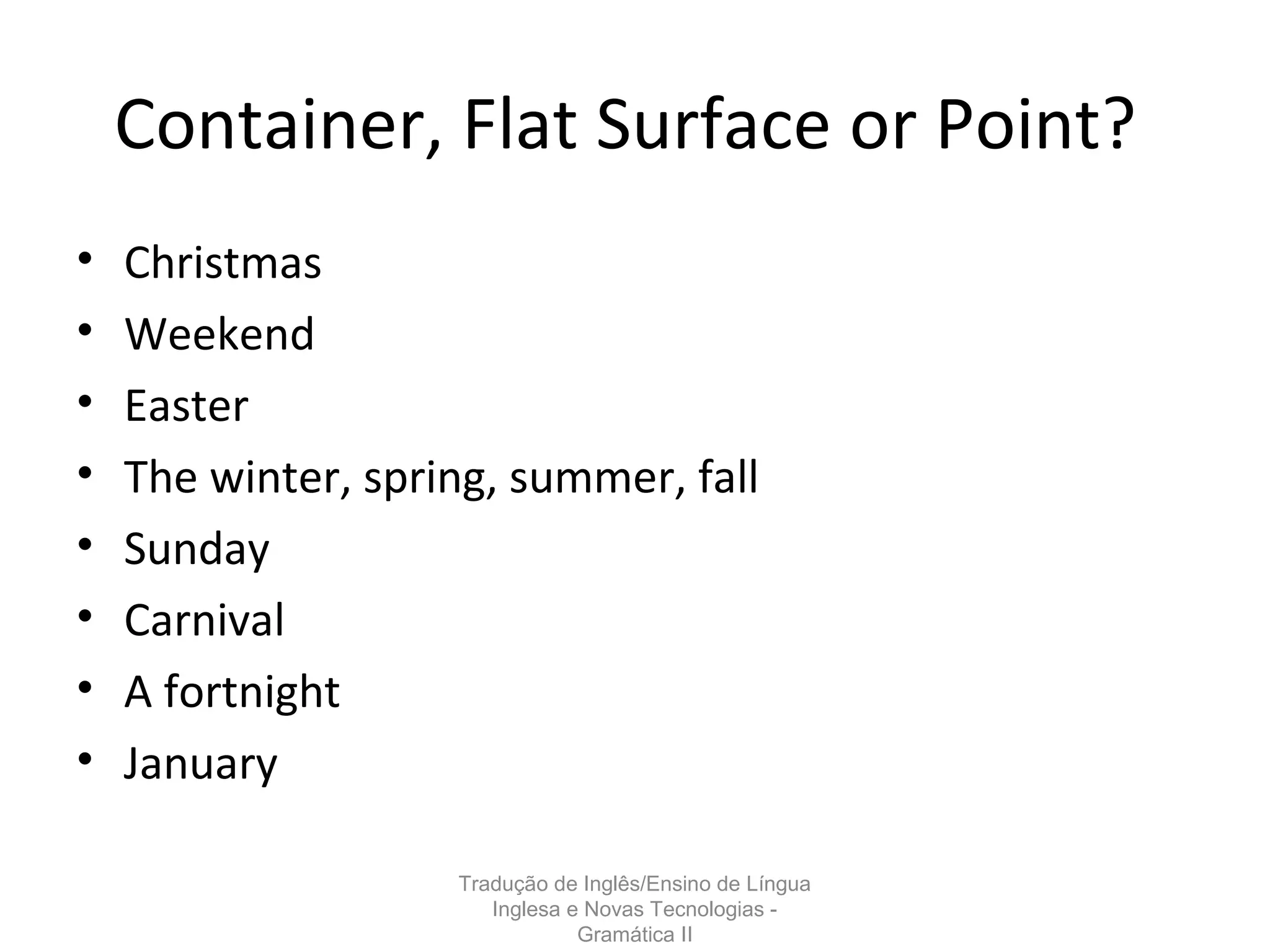This document covers topics related to teaching English grammar, specifically prepositions and conjunctions. Day 1 focuses on the evolution of English prepositions, types of prepositions, and how they are used to indicate space, time, manner and other meanings. Exercises are provided to practice identifying prepositions in sentences. The document also discusses conjunctions, including definitions, types, and how they are used to connect sentences and clauses.


















































































































































